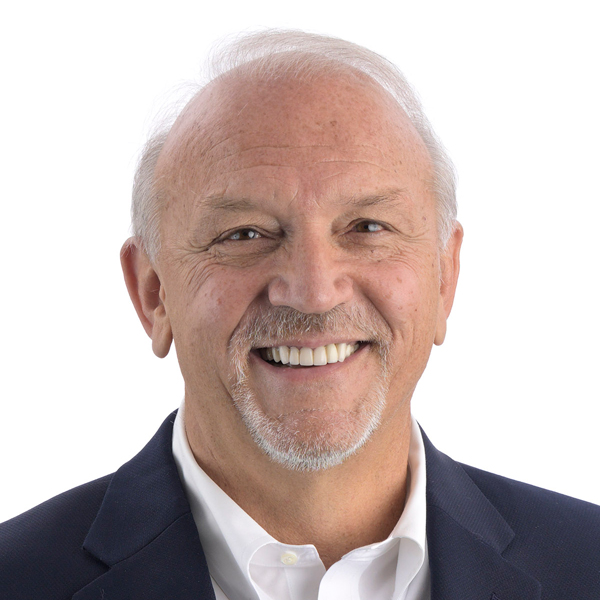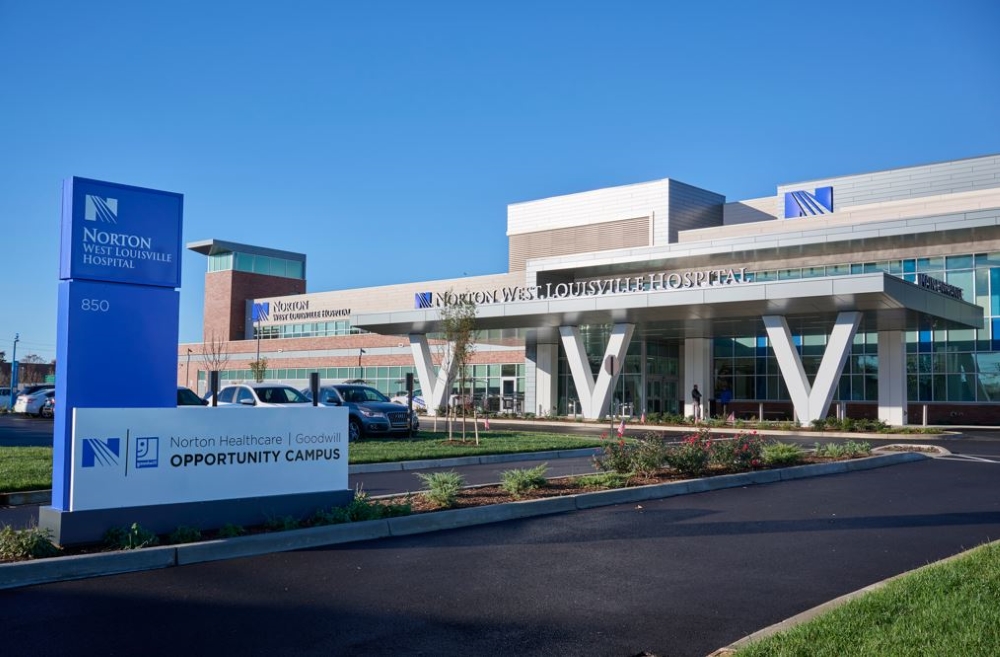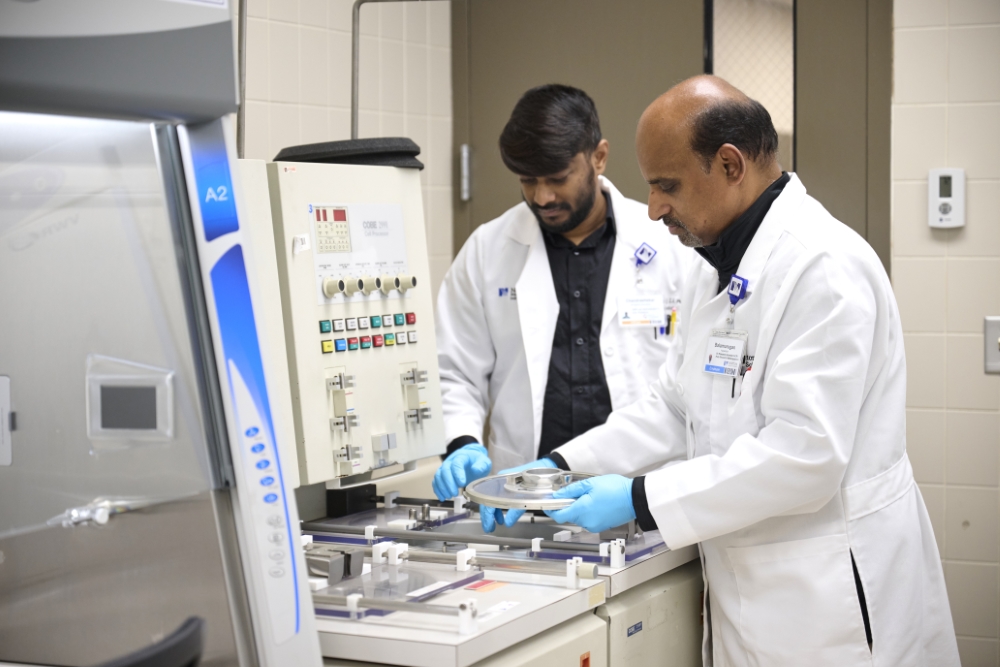Recent investments are expanding access to care in the commonwealth.
The COVID-19 pandemic was a wake-up call for health care across the nation, highlighting the need for stronger, more accessible medical services, especially in rural areas. In Kentucky, leaders have leaped into action, implementing solutions to expand health care access and ensure that every resident, no matter where they live, receives quality care.
Governor Andy Beshear has signed measures to expand access to health care, including initiatives to increase funding for hospitals that meet federal quality measures. In 2021, he announced that Kentucky hospitals would receive an additional $800 million to $1 billion annually to help advance the quality of care for Medicaid members and provide a stable base for hospitals overcoming the financial challenges of the pandemic.
One notable initiative that has emerged is the Kentucky Rural Hospital Loan Program, a $20 million revolving loan fund that offers low-interest loans to hospitals in counties with populations under 50,000. The funds administered through this program and the projects they support will directly impact 1.8 million Kentuckians living in rural areas.
These loans, ranging from $25,000 to $1 million at a 1% fixed interest rate, enable rural hospitals to maintain and upgrade their facilities, retain and grow their workforce, and provide health care services not currently available in their areas.
Going and Growing
Since the program’s inception in 2021, 11 loans have been awarded to nine hospitals throughout rural Kentucky, including three in 2024.
Last year, Livingston Hospital was awarded its first $1 million loan from the program. With this financing, it plans to construct a new physical and occupational therapy facility, a project expected to total approximately $1.8 million.
Baptist Health Deaconess Madisonville and Trigg County Hospital received their second Kentucky Rural Hospital loans in 2024, both totaling $1 million.
Baptist Health is using this round of funding for building improvements, which include replacing a deaerator tank and electric boiler. Trigg County plans to use its loan to purchase an MRI machine.
Matt Jordan, a program specialist at the Kentucky Cabinet for Economic Development and the program manager on all three projects, said, “We’re trying to get these communities access to funding that they really need to keep these hospitals going and growing. By establishing this program, we’re allowing these hospitals to remain open, providing funding for them to hopefully get, whether it’s equipment or new services that they don’t currently have, the community access.”
Norton Healthcare is Here to Help
Alongside the efforts of Kentucky leadership, Louisville’s second-largest employer, Norton Healthcare, is ensuring that residents in the Bluegrass region don’t have to look far for high-quality health care.
Russell Cox, Norton Healthcare’s president and CEO, believes that improving health care outcomes begins with access. Therefore his tenure has been defined by a dedication to expanding the organization’s outreach. In addition to running nine hospitals, the non-profit has grown from 200 access points to 400 throughout Kentucky and Southern Indiana. This growth allowed the company to increase its workforce as well, jumping from 14,000 employees to approximately 23,000.

“We definitely have the environment and the atmosphere in our community that can take this agenda on.”
— Russell Cox, President and CEO of Norton Healthcare
“We know there are disparities in our community based on lack of access,” said Cox. “So, if you can build relationships with people closer to home, remove the barriers by which they may decide not to use you, we think they will come. We will build a relationship. We will establish trust, and those outcomes will improve.”
The organization’s brand-new Norton West Louisville Hospital is a shining example of this mission implemented. Created in partnership with Goodwill Industries of Kentucky, this new hospital is the first built in West Louisville in more than 150 years.
Rather than build a hospital like the other eight in its network, Norton Healthcare chose to take a nuanced approach to the design and construction process.
“When we decided to build Norton West Louisville Hospital, we could have built a hospital like we’ve built many times, but we determined that the right thing to do was listen to the people who were going to be using the facility, ask them what they wanted to see, ask them what barriers they thought they were experiencing,” explains Cox.
Based on community feedback, Norton Healthcare added a centralized check-in area, community room, outdoor green space and a food pantry to the plans for the new facility. The campus additionally features a 24/7 emergency department, inpatient treatment, operating rooms, laboratory services, imaging services a retail pharmacy and more. There is also a Goodwill’s Opportunity Center, a part of the campus, which provides social services with various community partners.

Norton West Louisville Hospital, the first new hospital in the area in 150 years, opened to patients on Monday, November 11, 2024.
Photo courtesy of Norton Healthcare
Just Imagine
Building on its commitment to broadening care services, Norton Healthcare launched the “Just Imagine” campaign in 2024. The initial goal is to raise $200 million over the next two years to support investments that will ultimately increase accessibility to programs and services.
As of March 2024, the community has already donated $154.5 million.
In addition to focusing the funds on growing and enhancing facilities, elevating technological research is among the campaign’s top priorities, primarily in diabetes care, heart care, cancer care, critical care, neurosciences and pediatric behavioral health.
“It also allows us to attract very specific and high-level research individuals. And I think that does create a halo effect of excellence. It attracts patients and gets us national recognition as to the great work that’s being done here,” said Cox. “That campaign is one that’s going to ask our community to step up and join us and accelerate the growth in making this region known for what we think it is. We don’t take a back seat to Indianapolis, Nashville or any of those. The DNA in Louisville health care is strong.”
The Norton Research Institute has nearly 1,000 active studies underway, ranging from oncology drug trials to non-surgical Alzheimer’s and Parkinson’s treatment methods.
“We like to think that the research that we focus on directly impacts and makes better a patient’s life, therefore making the community a better place,” said Cox. “We definitely have the environment and the atmosphere in our community that can take this agenda on and be attractive and known for innovation and transformation in health care.”
Kentucky as a whole has been growing this reputation in recent years.
Over the last two decades, the state has emerged as trailblazer in medical innovation, with achievements such as the first successful hand transplant and the nation’s second implantation of an artificial heart taking place at hospitals in the region.
Since the start of the Beshear administration, the state has secured 71 new location and expansion projects related to the health care industry, totaling $1.15 billion in investment and creating over 4,000 jobs. With a strong health care system, innovative research centers and an influx of new companies, Kentucky is rapidly shaping into a rising health care hub worth watching.

